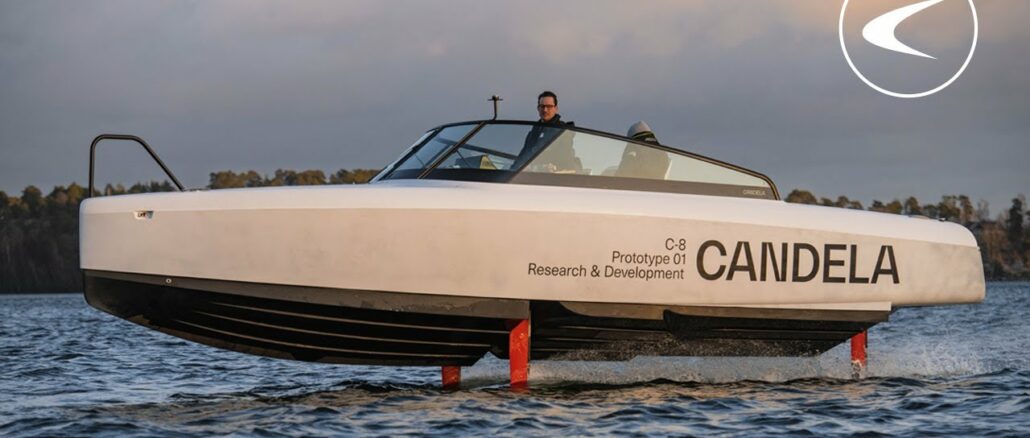
How the World Economic Forum Proposes to Solve the Carbon Impact of the Marine Shipping Industry
The World Economic Forum, the repository of solutions to absolutely everything that could go wrong on Earth (plus things that you didn’t even realize could be improved) has come up with what can only be described as a step back in time.
For those that have been following the machinations of the world’s foremost representative of the global ruling class and its mandate to convince us all that the world is about to end unless we are willing to take major steps to combat global climate change, this piece on the WEF website provides a roadmap for the global marine shipping industry:
In this article, written by Victoria Masterson who we will look at in more detail at the end of this posting, she opens by telling readers about a new electric ferry called the Candela P-12 which will start running a trial from Stockholm, Sweden to the nearby island of Ekero, a suburb of Stockholm. The ferry is being manufactured by Candela, a Stockholm-based company with its American headquarters in Sausalito, California. From the company’s website we find this:
The company’s ultimate purpose is to achieve “fossil fuel freedom” by speeding up the transition from fossil fuel to electricity in the maritime industry with their high-efficiency, all-electric propulsion system for both leisure boating and public transport.
Here is a video showing Candela’s C-8 model’s maiden “flight”:
The long-range all-electric C-8 is touted as the world’s first flying boat and has a starting price of €330,000 (so it’s obviously being built for the Davos crowd/parasite class and most definitely not for the organ donor class) and is now in full production. It can seat 8 passengers including the driver and has a top speed of 30 knots.
Here is a video showing Candela’s P-12, the electric ferry referred to in the WEF article:
The P-12 will have an average speed of 20 to 30 knots which is not that fast compared to other technologically advanced ferries and uses 80 percent less energy than conventional ICE-equipped ferries with its batteries charging from empty in one hour and has a capacity of 30 passengers. If the trial is successful, Candela hopes that its electric ferries can replace Stockholm’s fleet of 70 diesel ferries.
So, there’s the “good news”. Now, for the “bad news”. The global shipping industry accounts for 3 percent of global emissions, a relatively small percentage, however, the author insists that the world cannot become carbon-neutral without removing these emissions which are “…thought to cause around 60,000 premature deaths a year, especially in coastal and port areas...”. Here is a graphic showing carbon dioxide emissions by vessel type for the past decade which shows that, despite the increase in marine shipping volumes, have not grown substantially over the past decade:
According to the author (and reality), deep-sea cargo vessels are unlikely candidates for electrification given the massive rechargeable battery banks that would be required. But, never let facts get in the way of dreaming. Here is a video showing a zero-emission cargo ship that will run on liquified hydrogen:
You will notice that this cargo ship yields “no direct greenhouse gas emissions” however, it is pretty obvious to those of us with even a small amount of critical thinking ability that this is a scenario similar to electric vehicles which have no “tailpipe emissions” but which are indirectly responsible for the emission of significant volumes of greenhouse gas emissions throughout their entire life cycle since, for one, the electricity to charge EVs has to come from somewhere and the materials to build the batteries also has to be mined, processed and manufactured into batteries, using significant amounts of fossil-fuels.
According to the author, in 2018, the International Maritime Organization pledged to have the shipping sector’s emissions by 2050. More than 200 maritime industry leaders who are part of the Call to Action for Shipping Decarbonization are calling for even greater reductions to becoming entirely carbon-free by 2050 as shown here:
And, who is involved in the Call to Action for Shipping Decarbonization? Here’s list of supporting organizations with a key supporter being highlighted:
That’s absolutely shocking, isn’t it?
Now, let’s take a brief look at Ms. Masterson’s other suggestions for the shipping industry. Here is a direct quote from the piece:
“The shipping industry is trialling alternative fuels, like biogas – a renewable fuel typically derived from organic waste. Other fuels that can be produced with no or low-carbon emissions, like ammonia and methanol, are also being tested.
For example, Danish ship owner and operator Maersk is developing eight large ocean-going container vessels that can be run on carbon-neutral methanol.
Wind, sun and other forms of renewable energy can be harnessed on ships to help propel them. Swedish shipbuilder Wallenius Marine and its partners are developing the “Oceanbird,” a cargo ship powered by wind that can carry 7,000 cars.
Hybrid systems that combine batteries and other fuels are also being developed. Precious Shipping, a ship owner and operator in Thailand, is working on developing a hybrid battery system that also uses wind and solar energy.“
Given her reference to the Oceanbird, a wind-powered cargo ship, is not surprising given that this article appeared on the WEF website in December 2020:
One thing that none the advocates for battery-based transportation systems consider is the extremely high cost of replacing batteries once they have completed their life cycles and will no longer provide the capability to generate the power necessary for medium- or long-range shipping.
Let’s take a brief look at marine transportation from another viewpoint. I’m betting that there will be exemptions granted to certain marine craft including these vessels:
1.) The Lana super yacht:
2.) Oceanco Y721 owned by Jeff Bezos:
3.) The successor to the British Royal Family’s Britannia:
…and this list of the world’s 21 largest super yachts (among hundreds of thousands of other privately-owned yachts :
In closing, and now that we have her views on the subject of reducing the carbon impact of the global shipping industry, it would be wise to understand why Ms. Masterson’s views on the subject should likely be taken with a grain of salt given that her formal training has a nearly complete lack of science education beyond her O-Level achievement in high school biology with her remaining degrees including a Master of Fine Arts at the Edinburgh College of Art, an Honours MA in English Literature and Language and Master of Science (if indeed you can call it “science” in Factual Television which includes developing content for broadcasting, filming and editing content and sound recording and most of her work experience has been as a business journalist/editor and, most importantly of course, a Senior Writer of Formative Content for the World Economic Forum for the past two years. But, never let a lack of formal science and climate education get in the way of a good climate scare narrative, something that the content providers of the WEF seem to have in spades.
Once again, rules for thee but not for me says the ruling class to anyone who is listening and most of humanity is not.

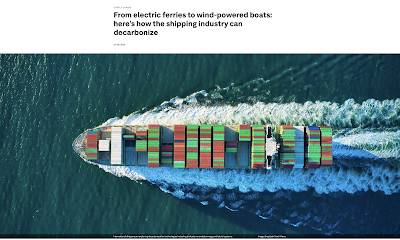
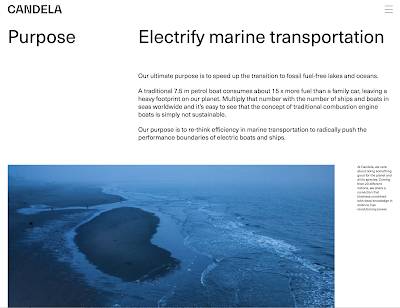
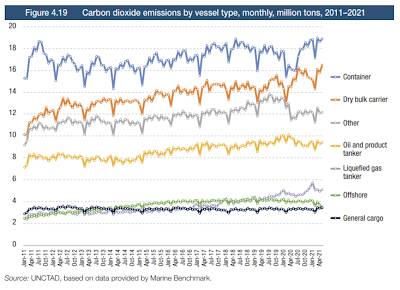
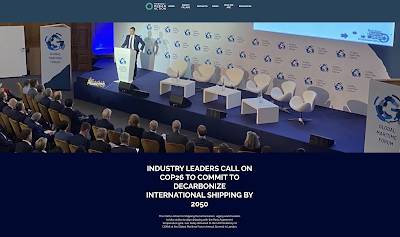
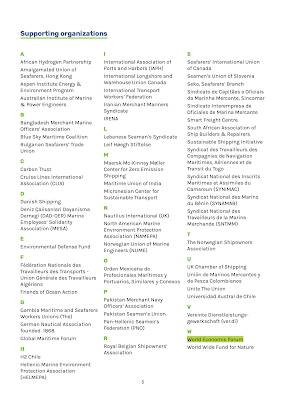
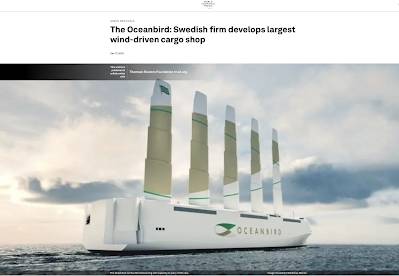
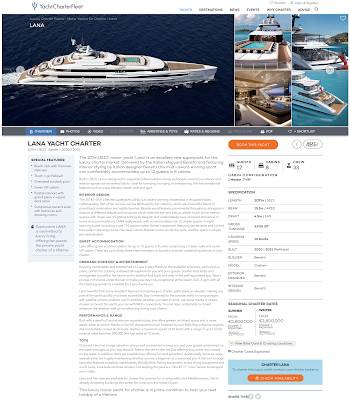
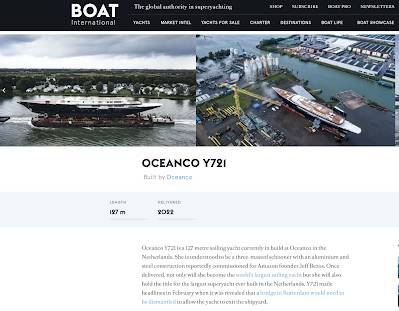
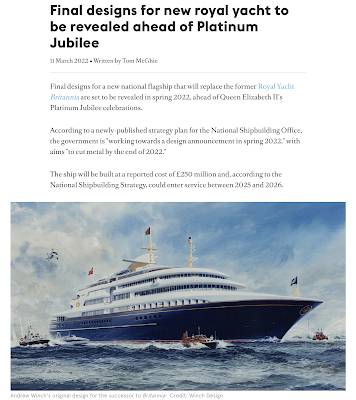
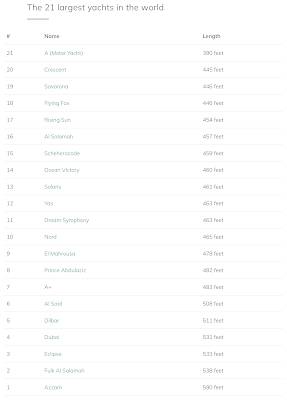
Be the first to comment